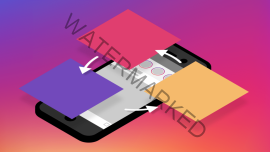Apex Legends hacker says game developers patched exploit used on streamers | TechCrunch
Last month, a hacker wreaked havoc during an esports tournament of the popular shooter game Apex Legends, hacking two well-known streamers mid-game to make it look like they were using cheats.
A month later, it seems like the hacking saga may have come to a close with the game developers patching the bug exploited by the hacker.
Because of the hack, the organizers had to suspend the tournament on March 17. Two days later, Apex Legends developer Respawn said on its official X account that it had “deployed the first of a layered series of updates to protect the Apex Legends player community.” Then a week later, the company wrote that it had “added another update that is intended to further protect our players and ensure the competitive integrity of Apex Legends.”
Respawn’s posts don’t clearly say that the updates patched the bugs exploited during the tournament. But the hacker behind the cheating scandal told TechCrunch this week that Respawn’s patches fixed the vulnerability that he had exploited to hack the two streamers.
“The exploit I’ve used in [Apex Legends Global Series] is fully patched,” the hacker who goes by Destroyer2009 said in an online chat.
Destroyer2009, who previously told TechCrunch that he had hacked the two streamers “for fun,” said he didn’t want to reveal any technical details of the bug he exploited, even if it is now patched.
“No one likes when severe vulnerabilities in your product are exposed publicly. I asked my friend and we both agreed that we don’t really want to publicly expose what happened from a technical perspective yet,” the hacker said, referring to a friend he worked with to develop the hack.
Contact Us
Do you know more about this hack? Or other video game hacking incidents? From a non-work device, you can contact Lorenzo Franceschi-Bicchierai securely on Signal at +1 917 257 1382, or via Telegram, Keybase and Wire @lorenzofb, or email. You also can contact TechCrunch via SecureDrop.
Referring to an unrelated botched in-game update by Respawn this week, Destroyer2009 said: “[I] don’t think embarrassing them even more is fair.”
Destroyer2009 said he tested his exploit after Respawn’s announcement of the second update on March 26, although he said it’s possible it was patched sooner because he didn’t have a chance to test it before.
Destroyer2009’s hacks were high-profile, disruptive, and caused a big stir in the Apex Legends community. The two streamers targeted, ImperialHal and Geburten, collectively have 2.5 million followers on the game streaming platform Twitch, and several other Apex Legends players and streamers commented on the news of the hacks on their channels.
Yet, Respawn isn’t being forthcoming about the patches it released. TechCrunch asked Respawn and Electronic Arts, the owners of the development studio, to confirm whether the exploit used by Destroyer2009 is indeed patched, and if so, when it was patched.
But neither Respawn nor Electronic Arts responded to TechCrunch’s multiple requests for comment. The two companies did not respond to requests for comment in the last few weeks either.
Meanwhile, Destroyer2009 said he won’t do any more public hacks for now, because “anything more severe than the [Apex tournament hack] accident will be already considered as a real hacking with all the consequences so [probably] will just play the game until it gets boring as usual.”









